Can a food allergy cause weight gain and what’s the deal with rotten gut bacteria, starving and weight gain?
They are all REAL; not just in your head.
A craving for sweet and starchy foods is typical for all people with abnormal bodily flora, particularly with Candida albicans overgrowth. No matter how finicky, most would accept sugary drinks, biscuits, cakes, sweets, sugar-laden breakfast cereals, chocolates, chips, crisps, pasta and white bread. In fact these are the foods to which many people limit their diet thus feeding the vicious circle of abnormal flora and toxicity in their bodies. (Gut and Psychology Syndrome, p. 157)
When I was in college and the early years thereafter, I ate a lot of fat-free, sugar-free junk.
I didn’t just eat a lot in general, but I ate a ton on a day-to-day basis because I physically felt hungrier than ever before.
It was a rotten gut (I know because of the stench produced), and I was starving, constantly. Nothing ever made me feel full.
But let’s explore these topics more in detail.
Can a Food Allergy Cause Weight Gain (Rotten Gut Bacteria, Starving and Weight Gain)
Click HERE to save this post on can a food allergy cause weight gain for later.
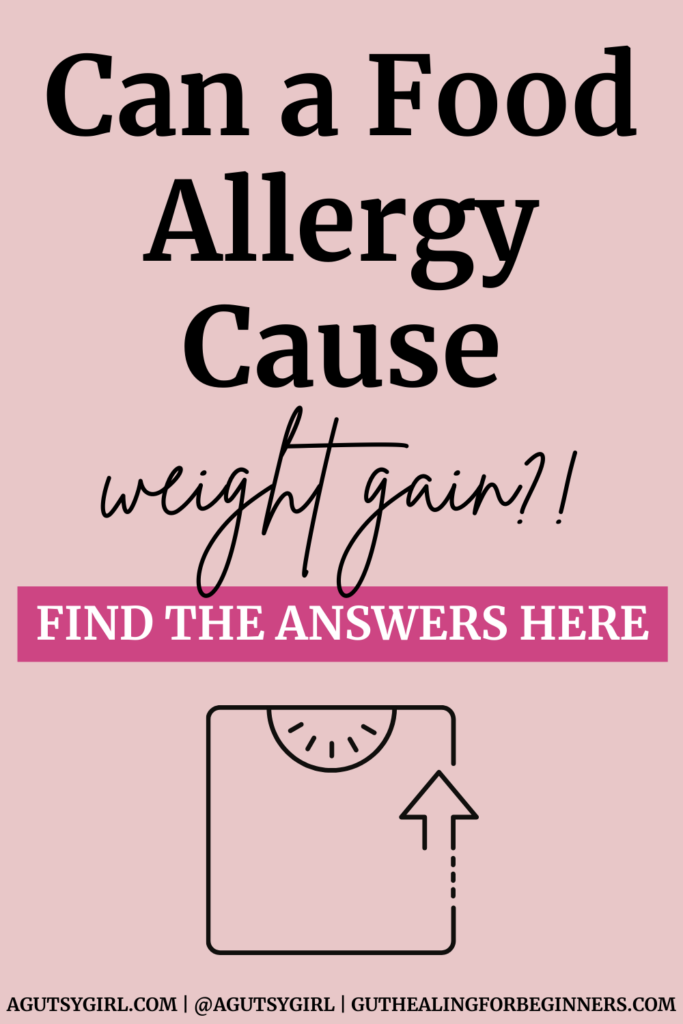
I gained weight (not astronomical, and I’m not here to complain about weight).
Fast forward to the beginning of my 101 days of intense gut healing. I didn’t want to show a picture that day because my gut was rotten (again, I knew from the stench around the house 🙂 ), I was starving, and the scale kept up going up-up-up each day.
The vicious cycle does not play games.
We either stop it in its tracks – forever – or it comes back to haunt us.
When I got back to me and really focused on the things that needed to be done to get my gut on the right track again, like some sort of miracle, I instantly dropped 7 pounds.
My secret: It wasn’t a miracle. It was simply scientific facts.
What is a TRUE Food Allergy?
If you have an allergy, your immune system overreacts to an allergen by producing antibodies called Immunoglobulin E (IgE).
These antibodies travel to cells that release chemicals, causing an immune system reaction; allergic reaction. This reaction usually causes symptoms in the nose, lungs, throat, or on the skin.
Each type of IgE has specific “radar” for each type of allergen. That’s why some people are only allergic to cat dander (they only have the IgE antibodies specific to cat dander); while others have allergic reactions to multiple allergens because they have many more types of IgE antibodies. (source)
Common food allergens include:
- cow’s milk
- eggs
- fish
- shellfish
- soy
- wheat
- soybeans
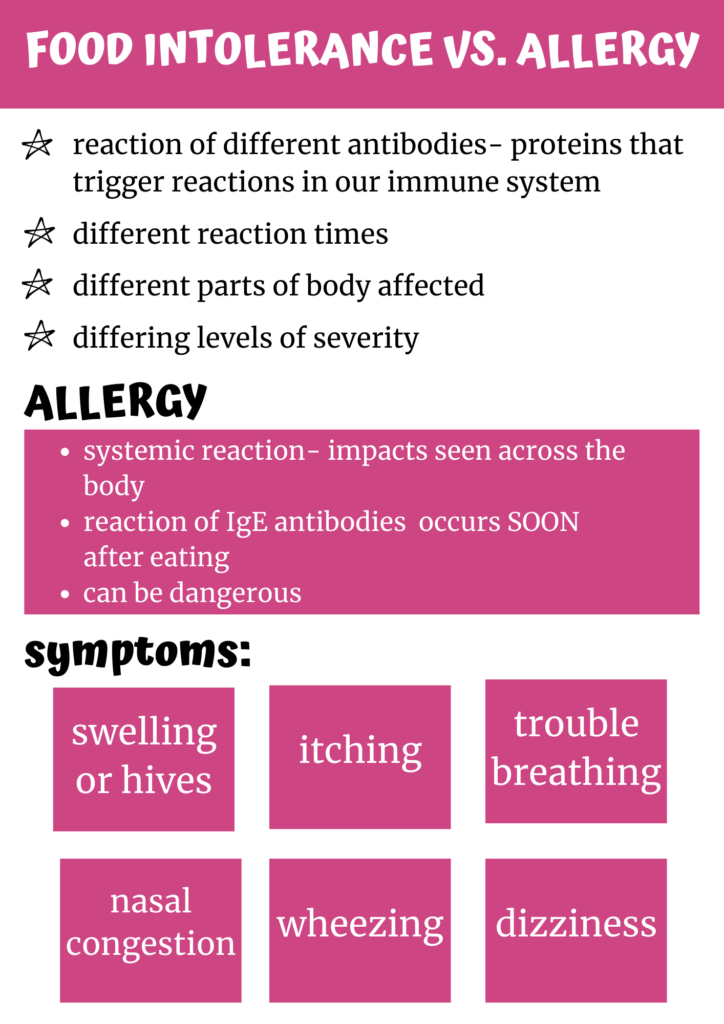
Symptoms of True Food Allergies
If you are truly allergic to specific foods, these are some of the symptoms you may experience.
- Periodic or persistent itching
- Hives
- Itchy eyes
- Eczema
- Nausea, vomiting, persistent diarrhea
- Sneezing, coughing, congestion
- Difficulty breathing
- Asthma symptoms: wheezing, breathlessness, coughing, tightness in the chest
(source)
Now, your main question here is this:
But I don’t see gaining weight as one of the symptoms. So do you or don’t you gain weight if you have a food allergy?
According to most medical and scientific research, food allergies do not cause weight gain. So the quick answer to, “Can a food allergy cause weight gain?” is, “No.”
The most succinct explanation I found with regards to this common question, ‘Can a food allergy cause weight gain?” is:
A reaction to consuming a food one is allergic to can cause temporary swelling but this is not permanent or part of permanent cell structures. (source)
HOWEVER, most women in the Gutsy community are dealing with gas, bloating, constipation and diarrhea due to delayed reactions to food and food sensitivities.
This is DIFFERENT than a true food allergy.
Before I continue on with that portion, here is how you’d test for a food allergy.
Allergy Testing
A true food allergy test includes skin prick testing. Food allergy testing exposes your skin to a particular antigen and then measures the allergen-specific IgE in your bloodstream.
This type of testing is extremely important if you feel like your symptoms more closely resemble immune-mediated responses than food sensitivities.
Seek medical attention and ask for this test from your health practitioner.
Delayed Food Intolerance
As I mentioned above, what is typically causing those uncomfortable symptoms is an intolerance to food.
And a delayed food intolerance can occur anywhere from shortly after consuming a food up to 72 hours later.
“Food intolerance, also known as non-IgE mediated food hypersensitivity or non-allergic food hypersensitivity, refers to difficulty in digesting certain foods.”
A food intolerance and hypersensitivity will not trigger an allergic reaction.
However, it can cause a whole host of unpleasant symptoms such as stomach cramps, gas, bloating, headaches, and heartburn.
A food intolerance occurs when the digestive system fails to break down certain foods. It often can be due to a lack of pancreatic enzymes or certain developments over time, such as a lactose intolerance.
It also is often linked with increased iGg proteins, which can trigger an overactive immune response. This can cause inflammation and discomfort, especially in the gut region.
Food intolerances are extremely commonly, and it is where the majority of the Gutsy community falls. And while it’s not life-threatening, it’s frustrating because a food intolerance has a delayed response. It can take anywhere from hours to days to show up after eating specific foods.
Thus, people tend to spin their wheels for years trying to figure out what’s wrong. Some even go their entire lives without pinpointing which specific foods are giving them issues.
This is why I created my gut healing journaling SYSTEM – to help those of you in this category. The PDF version can be instantly downloaded HERE. There is also a physical journal.
Weight Problems
Now, the REAL reason you came to this article is because you want to know if food – and an allergy (or even an intolerance) – to it is the cause for those extra pounds.
And when it comes to food intolerance the answer is that YES, yes that could be the reason you are not only experiencing digestive symptoms but also weight gain.
Let’s break it down.
Rotten Gut Bacteria
You don’t need me to explain this one. You know if you have it or if you don’t.
Rotten gut bacteria is not a medical term, it’s simply the idea that there is a bacterial imbalance, overgrowth and/or leaky gut present.
The most common reason for it is lifestyle; constantly eating offending food, chronic inflammation, health conditions like SIBO (which affects the small intestine where most of our nutrients are absorbed), and negligence of a healthy diet.
What’s more is that 95-99% of people don’t want to admit their rotten gut bacteria, so they just keep on doing the same ‘ole, same ‘ole while the rotten gut bacteria multiplies rapidly.
But just in case you still aren’t sure, HERE are some signs.
Starving
Growing evidence suggests that “bad bacteria boost appetite, which may explain why some people struggle more with weight gain than others.”
(Note: even though I’m talking about the weight gain aspect today, you should absolutely know that for many this can also lead to weight loss.)
When the gut has a bacterial imbalance, the gut microbiome is altered, and we start craving more rotten foods to keep the rotten bacteria satisfied and oftentimes prohibits the absorption of necessary nutrients.
This in turn causes us to become even hungrier with even more cravings and the cycle continues, which can cause unwanted weight gain.
According to an article on the Huffington Post, ‘”Bad gut” bacteria may be partly to blame for your junk-food cravings — by, for instance, sending out sugar-and-fat-jonesing signals via the gut-to-brain vagus nerve.”‘
Weight Gain
Science tells us that we tend to gain weight when calories in are greater than calories out and also when junk calories are consumed vs. quality calories. Therefore, with rotten gut bacteria and a hungry appetite, we are up against a never-ending battle.
And there’s another reason we gain weight from a poor gut – Chris Kresser made note that, “someone with bad gut flora could eat the same amount of food as someone with a healthy gut, but extract more calories from it and gain more weight.”
So what am I supposed to do about a rotten gut, starving, and weight gain?
You must begin to eat real food, but you must understand that there is far more to it than just “eat real food” if you have severe irritable bowel syndrome and/or even inflammatory bowel disease (which is when the body’s immune system attacks itself).
Here are 4 things to consider today + actions you might want to take:
1. Lumen Device
If it truly is about weight lost, the Lumen is the first portable device that tracks real time metabolic rate and creates personalized meal plans.
All you have to do is take one single breath and exhale into the Lumen. It gives you a lumen score, which can help guide your eating recommendations for the rest of the day. These real-time insights give you information about YOUR body right in THAT particular moment.
Sound too good to be true? Well it’s actually scientifically backed.
The Lumen device tracks the carbon dioxide concentration in your breath and uses this data point to determine if your body primarily uses fats or carbs as its fuel source. By discovering which your body prefers, you can switch over your macronutrient consumption to more accurately fit what YOUR body craves. This is referred to as your respiratory exchange ratio, and it forms the foundation for your metabolic health. It compares the amount of oxygen to the amount of carbon dioxide in your breathe and uses this information to connect the dots about your digestion and metabolism.
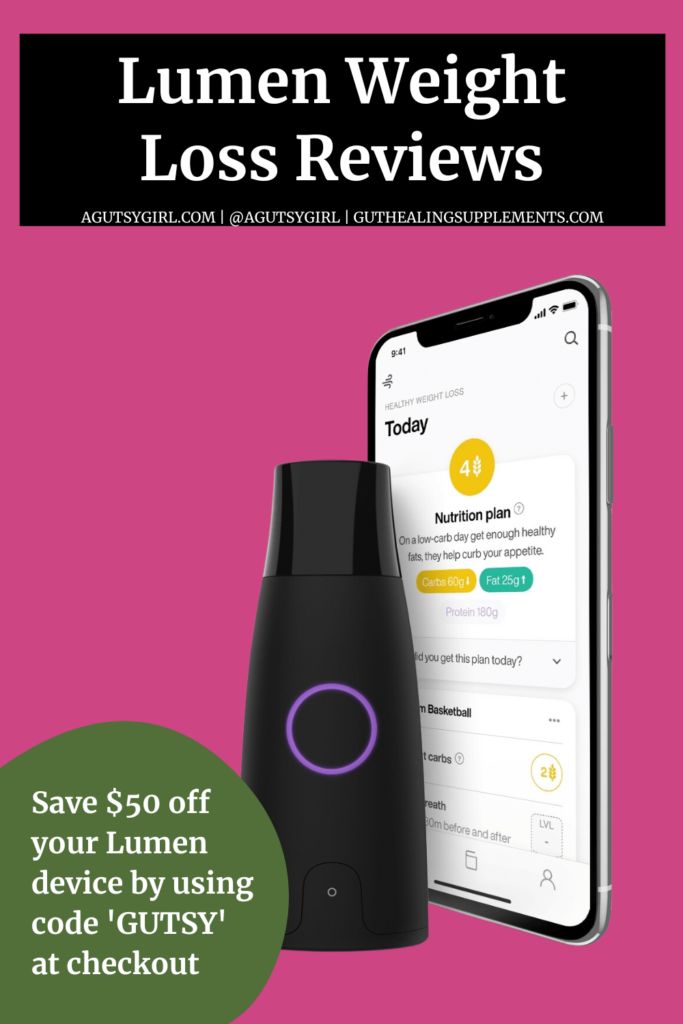
2. FoodMarble App
But, let’s say you suspect SIBO. Or maybe you’ve been eating super well with a lot of high-fiber foods, proteins and healthy fats. But you’re still miserable.
This is where the FoodMarble device and testing kit can come in handy.
FoodMarble wants to help those suffering from chronic gut issues including IBS, IBD, chronic constipation, and SIBO/IMO.
They initially created a device to help people find the foods that best suit their unique digestion.
This is achieved by tracking how their hydrogen levels change in response to the food they ate.
You can also get a FODMAP intolerance kit that can help you figure out your tolerance to some of the most common FODMAP sugars (lactose, fructose, inulin and sorbitol).
The device pairs with a handy app that records all your data so over time, you can see the trends.
Using a FoodMarble device is one of the best ways to start pinpointing if there is a particular food that’s affecting you.
The FoodMarble app gives a fermentation score, which is made by comparing the levels of methane and hydrogen gases in your breath after eating. And this helps you understand your food triggers better.
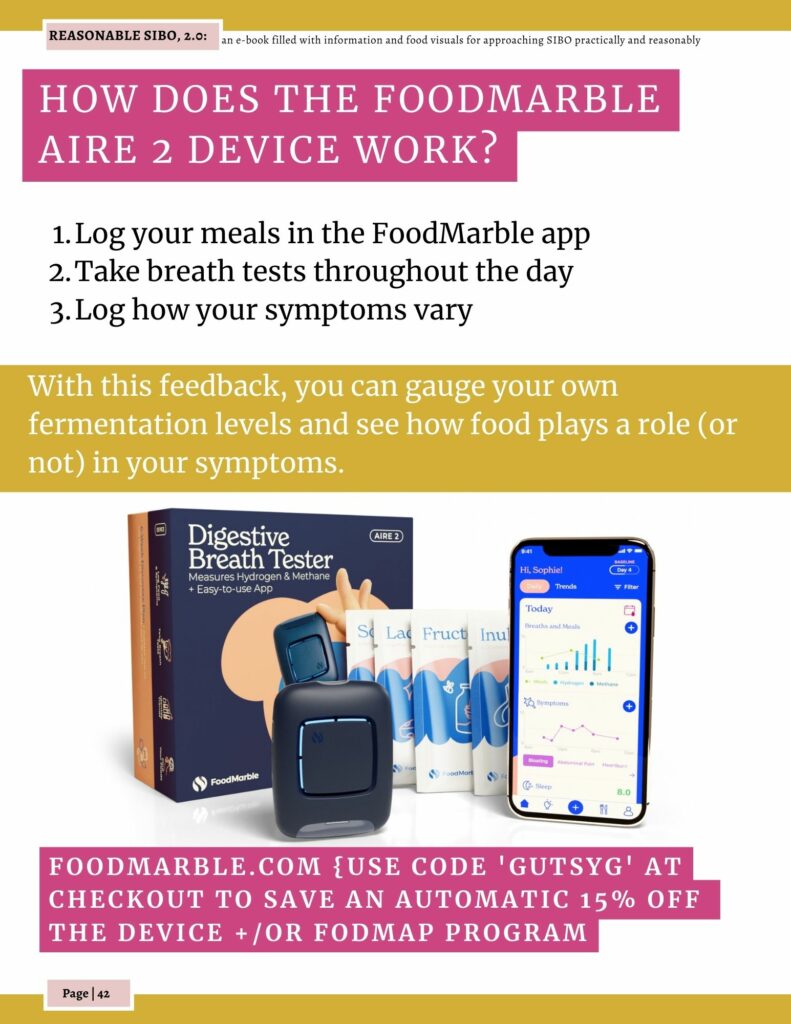
3. Food Sensitivity Testing
Test a broader set of foods that you suspect may be causing you discomfort with our most comprehensive food sensitivity offering. This test includes a wide range of foods and is ideal for people who eat a variety of cuisines.
Depending on the test you need, the collection method will vary – the ones I always did were via skin prick tests, though. What stays consistent is that you’ll receive your results on the EverlyWell secure platform within just days of them receiving it.
Since I know many of you have been looking to do a Food Sensitivity Test, here is what the process for this one looks like:
- Once you order, the test materials are delivered to your doorstep.
- Enter the barcode included with your kit at EverlyWell.com.
- Complete a simple finger prick collection and return with prepaid shipping.
- An independent board-certified physician will review your results.
- Once verified, you’ll receive your results on our secure platform within just days.
Each food will be rated on a Class scale of 0-3: Class 0 (low reactivity) to Class 3 (high reactivity). This is a great place to start if you want to dig into your body’s relationship with food.
You will also get:
- Tailored suggestions about what to do next
- Help prioritizing your trial elimination diet
- Personalized information and education
You can grab any of the EverlyWell tests today and save 20% at checkout by using coupon code AGUTSYGIRL.
4. The Elimination Diet
For both digestive issues and whole body understanding, something you can do – absolutely free of charge – is an elimination diet.
The ultimate goal of the elimination diet is to figure out which foods your body is reacting to and/or not responding well to.
Reactions could be generalized stomach pain, skin problems like eczema, general rashes and acne, bloating, diarrhea, etc. There are a variety of symptoms you may currently be experiencing – none of which are pleasant. Believe me, I know.
Really, anytime your body is presenting signals that something is not right, the chances that it’s food related are fairly high.
An elimination diet involves removing those foods during an elimination period, and then later reintroducing them, one at a time.
Simultaneously, you’ll watch for symptoms that show a reaction.
The process takes a slow-and-go approach.
Reactive Foods
Yes, you must take ownership over the fact that junk food and junk ingredients leave you miserable, but you also have to know that right now, here in this moment, all your “real food” might be keeping you symptomatic (and smelly).
It did to me.
This is the place on your journey that is probably the hardest because you’re feeling miserable from seemingly everyday foods, your body weight isn’t where you think it should be, and you are confused, wondering where and what to do next.
I have lived through all of this. I’ve lived through feeling famished daily. Neither are the way I want to live my life on a daily basis ever again.
Start now. Start today. The cycle definitely will not end on its own.
Make this less about your weight loss goals and more about your desire to feel feel; healthy and well. Believe me — WHEN you heal your gut, your body goes the weight it desires. It’s known as the Set Point Theory, and I’m proof that it’s real.
HERE is the best first place to start.
If you liked this post on can a food allergy cause weight gain, you might also enjoy:
- Gluten Sensitivity
- Food Intolerance or a Leaky Gut
- How to Food Journal to Identify Food Intolerances
Xox,
SKH
🤰 bloating be gone! weight loss through optimal gut health for women
💃ʜᴇᴀʟ ʏᴏᴜʀ ɢᴜᴛ. ʜᴇᴀʟ ʏᴏᴜʀ ʟɪfe.
🫶🏻 founder gutbyome.com


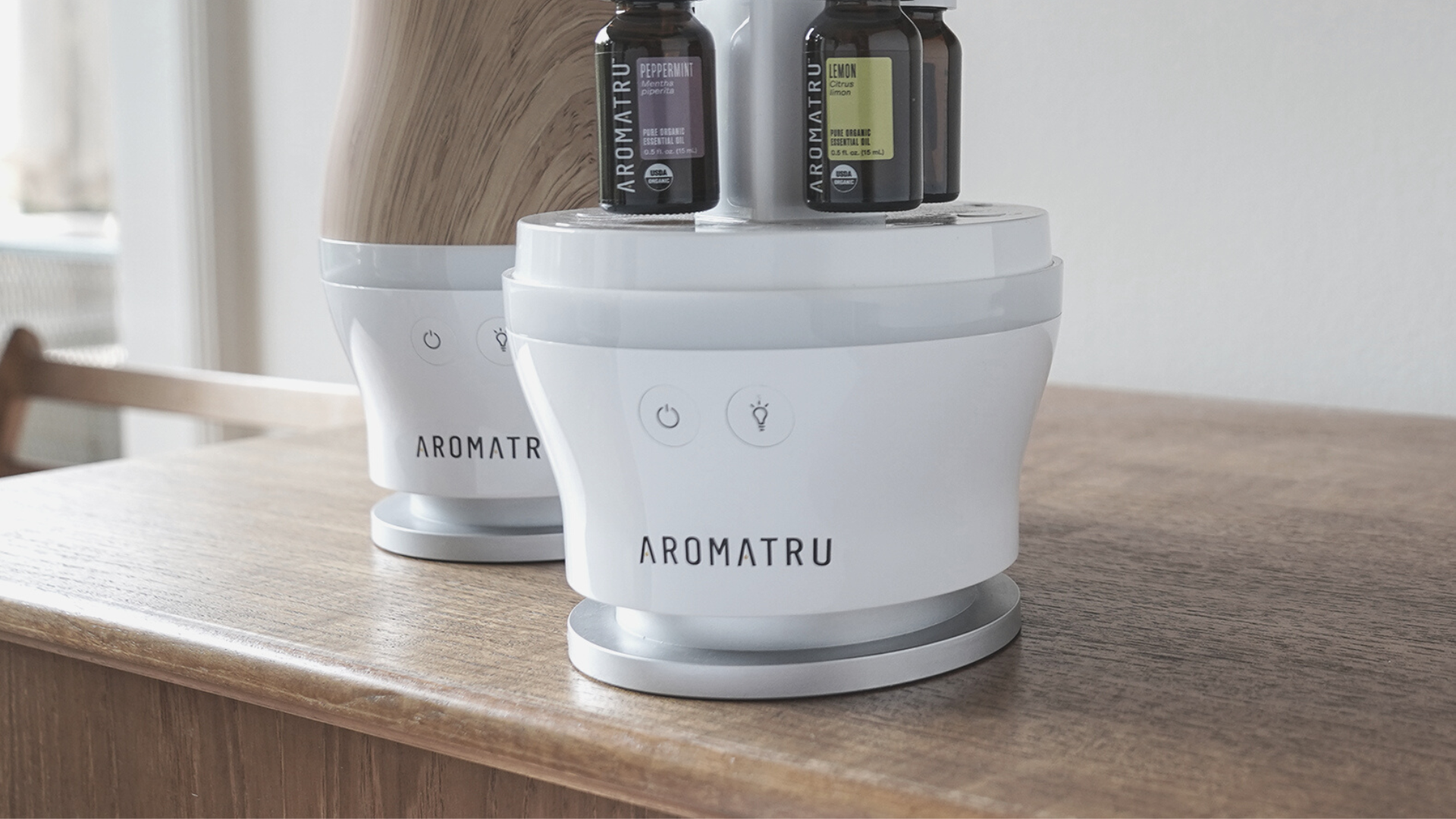
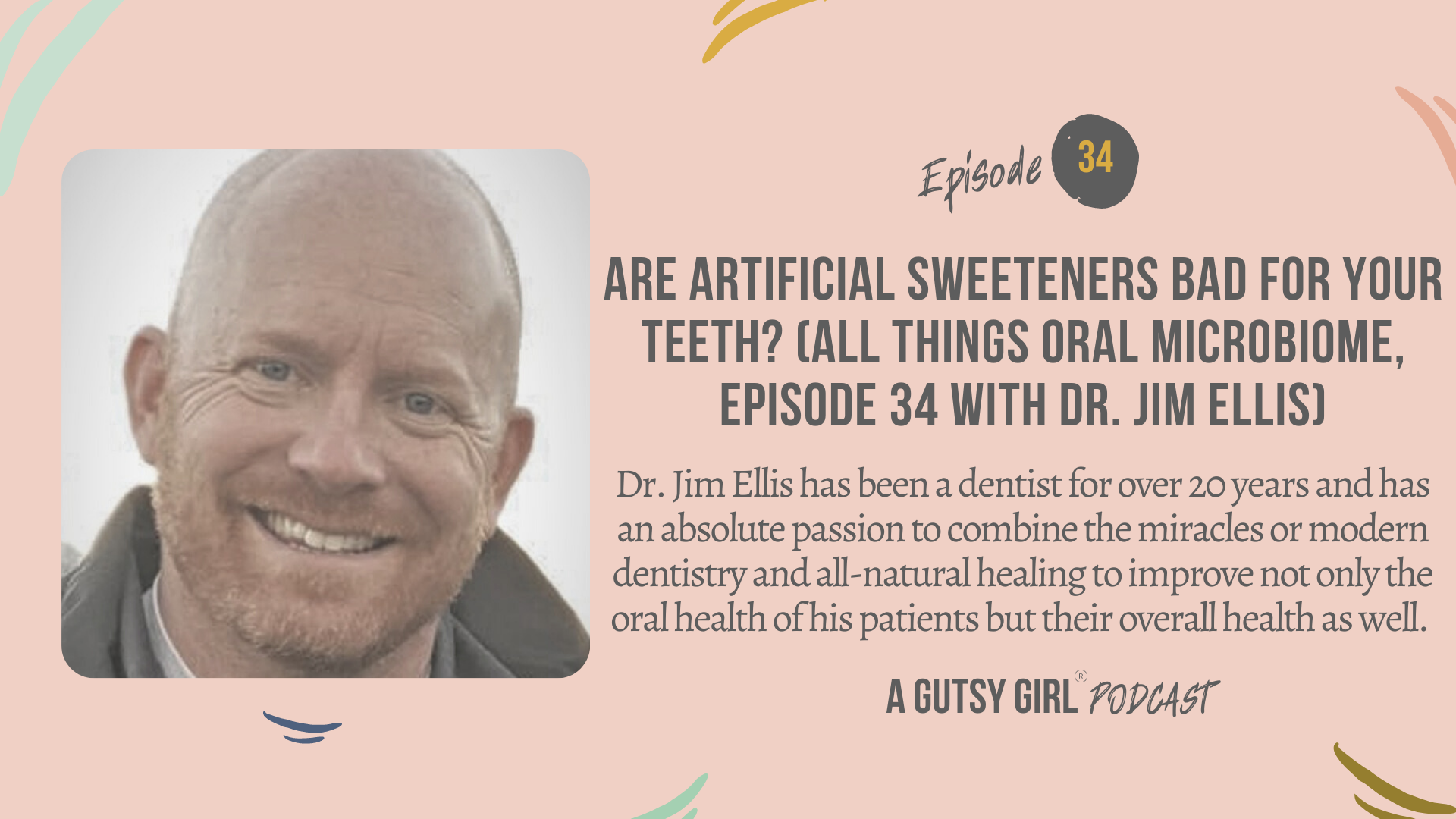

![30 Day Detox [Best Plan in 2024]](https://agutsygirl.com/wp-content/uploads/2020/12/reset-featured-agutsygirl.com_.png)


I’m with you on that one! I’ve lived through over 10 years of rotten gut bacteria before healing and I completely agree. Great post!
ox
Thanks!
Thanks for this! I’m struggling with this right now, so this is helpful.
You’re welcome. Always happy to help!
So so interesting!! Thanks girl!
Oh man… that cross section picture of the Cup O’ Noodles almost made me lose my lunch! It’s really shocking that people consider that food.
It’s definitely, unfailingly about whole food. Processed food = processed people!